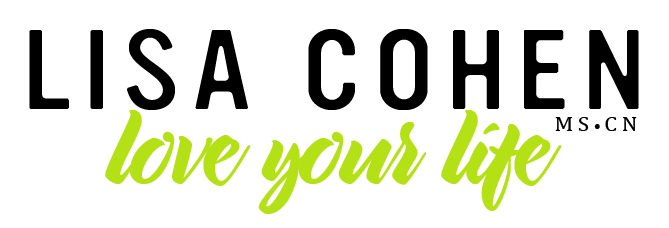Food And Your Mood
/No question that what you eat can affect how you feel, right?
Mental health and brain health are complex. So are the foods we eat, and the ways our bodies interact with those foods. While we don't know the exact mechanisms how food and nutrition help, we know a few ways food impacts our moods.
First, what we eat becomes the raw materials for our neurotransmitters. “Neurotransmitters” are biochemical messengers that allow our nerve cells to communicate (the major ones that regulate mood are serotonin, dopamine, gaba and norepinephrine). They are important not just for thinking and memory, but also for mental health.
Second, what we eat affects our blood sugar. And having unstable blood sugar levels can contribute to mood swings.
Mood-boosting foods
Some nutrient deficiencies look like mental health problems; this includes deficiencies in B-vitamins, vitamin D, and the minerals selenium, magnesium, and zinc. So, getting enough vitamins, minerals, and antioxidants are key. These nutrients not only reduce inflammation but also fuel the biochemical reactions in our bodies. Including those that create neurotransmitters. So make sure you're eating a variety of nutrient-dense whole foods, especially fresh fruits and vegetables. In fact, studies show that people who eat the most fruits and vegetables are the happiest.
First: Pay special attention to vitamin D (the sunshine vitamin), as it’s not naturally occurring in very many foods. Selenium is an essential mineral found in Brazil nuts, walnuts, cod, and poultry. In fact, 2 brazil nuts provide more than your recommended daily dose of selenium. Try to add some of those to your weekly diet.
Second: Make sure you get enough protein. Protein is your body's main supply of amino acids. Amino acids are very important for mood issues because they are the building blocks of neurotransmitters. Protein also helps to regulate blood sugar. I recommend eating protein with every meal. (organic choices of animal protein and plant protein)
Third: Complex carbohydrates like sweet potato, quinoa, and whole grains are great too. They allow better absorption of key amino acids like tryptophan. Tryptophan is used by your body to make serotonin (your “happy hormone”) and melatonin (your “sleepy” hormone).
Fourth: Fish and other sources of omega-3 fatty acids (nuts, seeds, and algae) are also mood-boosting. Omega-3s are definitely “brain food” and may help to ease some symptoms.
INTERESTING FACT: One study showed that giving one multi-vitamin and one omega-3 fish oil tablet per day to prison inmates reduced the incidence of violent behavior by 50%.
Last: But not least, make sure you’re hydrated. Even mild dehydration can cause mood issues as well.
Mood-busting foods
You won’t be surprised to hear me say sugar and processed foods are mood-busters, right? One study suggests that eating a diet high in sugar and processed foods can increase your chances of becoming depressed by as much as 60 percent!
But, have you ever noticed that some of these mood busters can make you feel better temporarily?
Food companies study how to maximize the "pleasure" centers with the perfect amount of sugar, salt, and fat. Not to mention the color, texture, and taste can light up our taste buds and make us feel good…....Temporarily.
A few other things to avoid if you are experiencing low moods:
● Alcohol (nervous system depressant)
● Caffeine (may worsen anxious feelings and ability to sleep)
● Sugar (worth mentioning again.......messes with your blood sugar and can worsen inflammation).
Conclusion
Can a good diet replace medicine or therapy? Not for everyone. But people at risk for depression should pay attention to the food they eat. It really doesn’t matter if you need an antidepressant or not. A healthy diet may work even when other treatments fail. And at the very least, it can serve as a supplemental treatment—one with no bad side effects, unlike antidepressants—that also has a giant upside.
Bad moods can lead to bad eating habits; and, bad eating habits can lead to bad moods. It can be a vicious cycle. If you need a mood boost, stick to nutrient-dense whole foods. Things like fresh fruit and vegetables (especially leafy greens), nuts and seeds, green tea, eggs, fish, organic poultry and grass-fed beef. Take a break from the common mood-busting foods like processed foods, alcohol, caffeine, and sugar.
References:
http://www.precisionnutrition.com/food-and-mood
http://www.precisionnutrition.com/how-to-fight-depression-naturally-with-nutrition
https://nutritionfacts.org/video/foods-increase-happiness/
Recipe: Mood Boosting Fig and Ricotta Toast
Ingredients for 1 serving
1 slice crusty whole-grain bread
2 tbls ricotta cheese
1 fresh fig
1 teaspoon sliced almonds, toasted
1 teaspoon honey
Pinch of sea salt
Toast bread. Top with ricotta cheese, figs and almonds. Drizzle with honey and sprinkle with sea salt.




